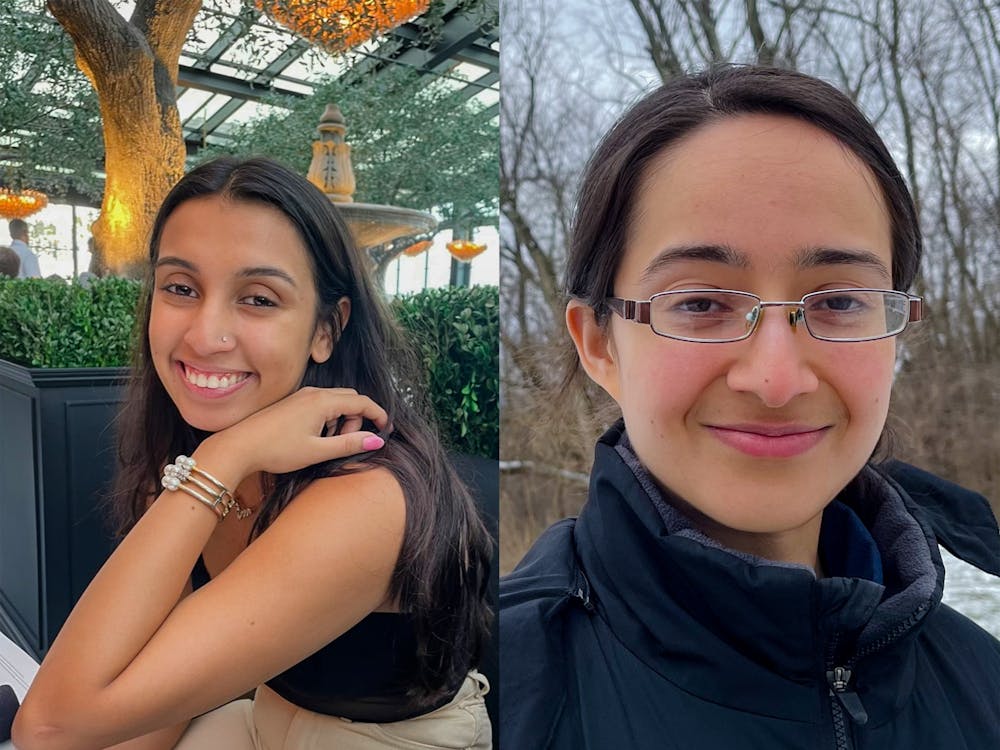Leela Canuelas-Puri ’23 and Meena Pandit ’23, a former Herald staff writer, were selected for the Brooke Owens Fellowship this January. The organization, which is known for its competitive application process, accepted 47 applicants out of almost 1,000 to its Class of 2023.
Founded in 2016 to honor Dawn Brooke Owens, a “space industry pioneer and accomplished pilot,” the fellowship is a nonprofit organization that aims to provide women and gender minorities with greater access to the aerospace industry. Undergraduate students are selected through a application process that evaluates their “desire to pursue a career in aerospace, stand-out creative abilities, record of leadership and most importantly commitment to their communities,” according to the program’s website.
Once selected, students receive internships in space exploration and aviation and are matched with a mentor, both of which support the fellows as they launch their careers, according to the website.
Pandit and Canuelas-Puri were also invited to the annual Brooke Owens Summit held this summer in Washington, D.C., which will allow them to meet mentors, industry professionals and other fellows.
Emily Calandrelli, a former engineer at the Massachusetts Institute of Technology and TV host who was part of a five-member committee that evaluates candidates, expressed praise for this class of fellows.
“Winning candidates stood out based on their creative ability, academic prowess and passion,” Calandrelli wrote in an email to The Herald. “Leela and Meena were incredible students selected from a large pool of impressive candidates from all over the world.”
According to Pandit and Canuelas-Pur, the three-round application process differed from other applications. The first round included the submission of an original essay and a creative piece, the second involved an interview with an executive board member and the last paired candidates with host companies for a final evaluation.
The process “holistically” evaluated both the creative and analytical abilities of each applicant, Pandit wrote in an email to The Herald. “I thought that was a very novel, thoughtful approach.”
Pandit, who is concentrating in Science, Technology and Society with a focus in science communication and policy, highlighted how her experience at Brown, particularly the University’s supportive faculty, motivated her to apply to the fellowship.
She also emphasized the freedom she has at Brown to pursue interdisciplinary learning. “Without the opportunity to explore these different interests, I’m not sure I would have ever found myself” with the fellowship, she wrote.
Canuelas-Puri, a fifth-year senior who studied at the University of Pittsburgh during the beginning of the COVID-19 pandemic and returned to Brown for her junior and senior years, also highlighted the uniqueness of the application process.
Despite the Fellowship’s low acceptance rate, Canuelas-Puri emphasized that the application process did not feel competitive. “What you’d see instead is people getting excited about space together, sharing professional resources and connections, cheering each other on through difficult classes, tough projects and the application process itself,” she wrote in an email to The Herald.
Canuelas-Puri, who had applied to the Fellowship twice before getting accepted on her third attempt, added that the experience of rejection taught her “how to respond … constructively” and strengthen her application for future attempts.
She worked to review notes from interviews and find the professional skills that she lacked in order to better approach subsequent application attempts. “Improving interviewing and programming skills was well worth the effort to work in space exploration,” she wrote.
For her internship, Canuelas-Puri matched with Planet, a company that “provides daily satellite data that helps businesses, governments, researchers and journalists understand the physical world,” according to their website. There, Canuelas-Puri will be working on developing procedures that analyze the performance of satellites and sending them code.
“I’m hoping the internship will help me start to develop some of the knowledge required to contribute to space exploration that you can’t get via ‘book learning,’ ” she wrote.





